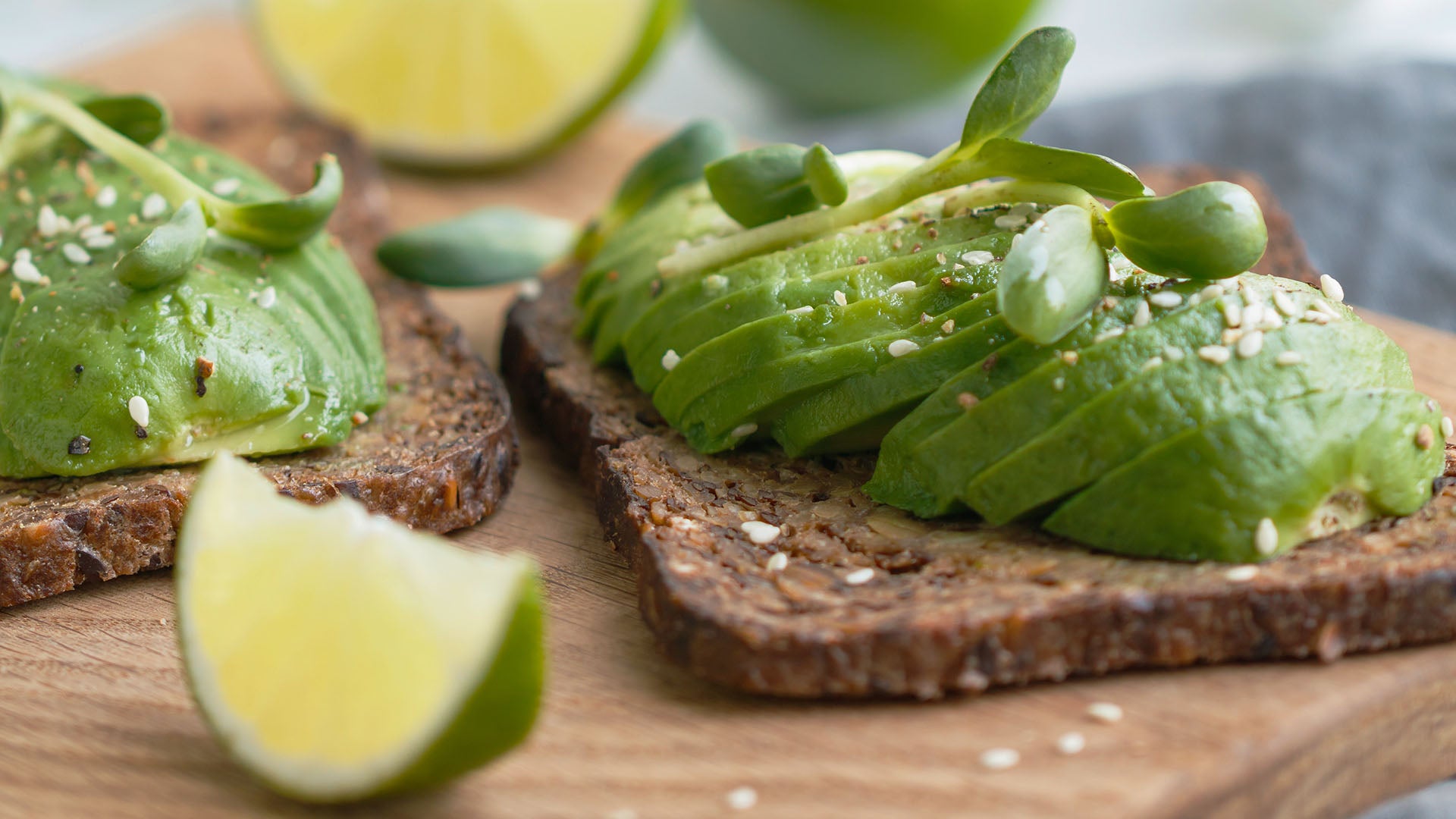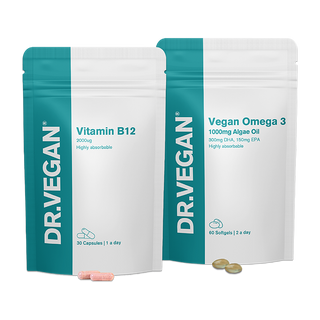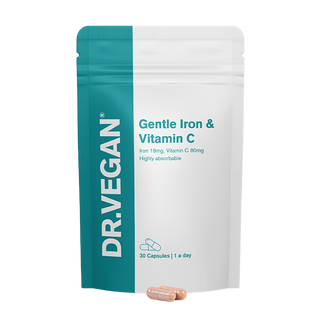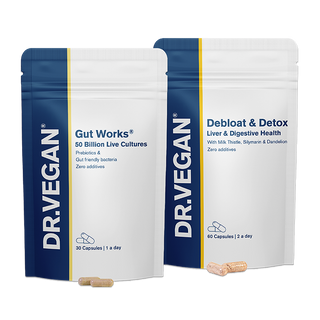Plant-based diet: dispelling the myths

By: Shona Wilkinson
Recently, the rise of plant-based diets, spurred by a growing awareness of health and environmental concerns, has gained considerable traction. Despite this surge in popularity, several misconceptions continue to circulate, deterring many from exploring the benefits of plant-centric eating. Here, we debunk some of the most common misconceptions and provide insights on how to approach a plant-based diet in a balanced and sustainable manner.
'Plant-based diets are healthier'
It is often assumed that all plant-based diets are inherently healthier. While plant-based eating can offer many health benefits, it's essential to note that not all plant-based foods are created equal. Diets rich in processed foods, refined sugars and heavily processed plant-based meats can harm health. To avoid this, consume whole foods including fruits, vegetables, whole grains, legumes and nuts. Emphasise a diverse and colourful plate to ensure a well-rounded nutrient intake.
Tip: Incorporate 'superfoods' into your shopping list as often as you can. These include Kimchi, Fennel, Beetroot, Basil, and Avocado, which are delicious and nutritionally dense foods that are inexpensive and easy to add to any meal or snack.
What's your diet missing? Create your free Diet Profile and find out.
'Plant-based diets are restrictive and challenging'
Many people fear that adopting a plant-based diet will lead to a limited food selection and a lack of culinary enjoyment. However, embracing various plant-based foods opens up a world of flavours and textures. In fact, when most people experiment with being vegetarian or plant-based, when eating meat again, they notice that most of the flavour from their meals comes from the vegetables and plant-based ingredients, not the meat. Remember, more than 4 billion people globally eat a vegetarian or vegan diet, and a healthy mediterranean diet contains very little or no meat, so there are lots of recipe inspirations out there.
Experiment with different cultural cuisines, include spices, herbs, different pastas, vegetables and oils, explore new ingredients, recipes and discover the versatility of plant-based ingredients. By fostering creativity in the kitchen, transitioning to a plant-based diet can become an exciting and enriching culinary journey. Looking for some inspiration? Try our free plant-based recipes for breakfast, lunch, dinner and dessert.
Take a look at some of our 'must-have' vegan foods to add to your shopping trolley to help you reach your health goals and '5 great healthy lunch ideas' curated by our nutritionists.
'Being vegan is expensive'
The misconception that plant-based diets are inherently costly overlooks the affordability of many plant-based staples. Adding whole grains, legumes, seasonal fruits and vegetables to your diet can be budget-friendly. Opting for whole foods rather than expensive processed vegan alternatives can significantly reduce costs. Planning meals, buying in bulk and exploring local markets can further optimise your budget without compromising nutritional quality. Our expert nutritionist, Shona, debunks the biggest food myths.
Vegan Essentials Bundle

'You won't get enough calcium in a plant-based diet'
Contrary to popular misconceptions, obtaining sufficient calcium from a plant-based diet is very achievable. Incorporate calcium-rich foods including leafy greens, sesame seeds, tofu and fortified plant-based milk into your meals. Maintaining a balanced diet that includes a variety of nutrient-dense plant foods helps you meet your calcium requirements without the need for dairy products.
Tip: Ensure you are reading the labels on plant-based milks to ensure you are choosing one that aligns with your health goals and that is not filled with added sugars, flavourings or unnecessary additives. Learn more in 'What is the best plant-based milk?'.
'Plant-based diets are low in iron'
While plant-based iron sources differ from animal products, they can be equally effective. Including legumes, tofu, seeds, nuts and dark leafy greens in your meals can boost your iron intake. Pairing these foods with Vitamin C-rich sources, including citrus fruits or bell peppers, can enhance iron absorption. Plant-based iron sources are in some ways superior. You cannot overdose on plant iron, as you will simply not absorb excess iron; instead, you will pass it through the gut. Contrary to this, iron from animal sources is absorbed whether you need it or not and in some cases, it can contribute to iron toxicity.
Our experts explain why iron is so important, particularly for women.
Gentle Iron & Vitamin C

'You will lose muscle on a plant-based diet'
Maintaining muscle mass on a plant-based diet is achievable through an adequate intake of plant-based proteins. Incorporate protein-rich foods like lentils, chickpeas, quinoa, tofu and tempeh into your meals. Additionally, focusing on strength training exercises can help preserve and build muscle mass, ensuring a balanced and sustainable plant-based lifestyle.
You may enjoy reading 'Nutrition for working out' and '4 top nutrition tips for optimal sport performance'
'You will feel hungry'
The satiety factor of plant-based diets depends on including high-fibre foods, which promote feelings of fullness and satiety. Add ample whole grains, legumes, fruits and vegetables to your meals to keep hunger at bay. Additionally, staying hydrated and consuming foods rich in healthy fats and proteins can contribute to a lasting feeling of fullness. Discover the difference between healthy and unhealthy fats and 'The 5 best carbs for plant-based meals'.
Gut Health Bundle

'You will be more gassy and bloated'
Initial digestive changes might occur when transitioning to a plant-based diet due to increased fibre intake. However, this is the case when you add fibre to any diet, and these issues are temporary and can be alleviated by gradually introducing fibre-rich foods into your diet rather than making sudden changes. Building a diverse microbiome through consuming various plant-based foods can ultimately improve gut health, reducing the likelihood of bloating and digestive discomfort over time. Stay on top of bloating with our Gut Health Bundle and discover the best tips to beat the bloat.
We also recommend reading 'Common reasons you might be bloated' and 'What do your farts say about your health?'.
Anyone can harness this lifestyle's health benefits and culinary richness by emphasising a diverse and nutrient-dense plant-based diet. Embrace the journey towards a more sustainable and vibrant way of eating, one plant-based meal at a time.
Note: not all vegan diets are healthy; learn about the mistakes to avoid on a plant-based diet and, 'Do vegans need supplements?' and 'What supplements should vegans take?'.
Discover our range of vegan supplements and probiotics.
You may also enjoy reading:
- Nutritionists explain common vegan deficiencies
- 4 things to watch out for when buying supplements
- Is sugar actually that bad for you?
- 5 things nutritionists wish all women knew
- Is oat milk good for diabetes?
- Animal ingredients in supplements - what you need to know
Want to hear more from our nutritionists? Sign up to our email newsletter for insights and exclusive offers:


















